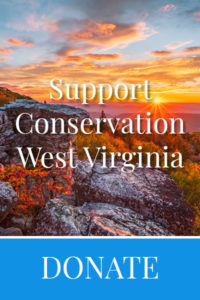West Virginia’s Green Amendment
In early 2019, thirty-two West Virginia legislators introduced Resolution 25 in the West Virginia House of Delegates. The Resolution called for an amendment to the West Virginia Constitution creating a right to clean air, pure water, and the preservation of the natural, scenic, historic, and aesthetic values of the environment.
Modeled on a similar amendment in Pennsylvania, the “Green Amendment” declares that these public natural resources are the common property of the people and appoints the State of West Virginia as trustee of those resources. These declarations would have sweeping legal consequences if the Green Amendment is adopted.
The Green Amendment was referred to the House Agriculture and Natural Resources Committee from which it did not emerge during the 2019 regular session. It will be re-introduced in the upcoming general session. Eastern Panhandle Delegates John Doyle, Sammi Brown and Isaac Sponaugle are among the co-sponsors.
The Green Amendment would substantially change the legal landscape regarding environmental rights and law. Presently, any rights to environmental cleanliness are created by statute or regulation. For example, DEP regulations now govern the amount of various chemicals that are permitted in our drinking water. The determination of what is permissible is heavily influenced by the industries that are affected by the regulation.
With a Green Amendment, the people’s right to a clean and healthy environment would occupy a higher order of legal significance. Statutes and regulations would have to be consistent with the right or be subject to rejection in a court as unconstitutional. If the West Virginia Legislature or the DEP created a statute or regulation affecting the cleanliness of drinking water, they could to do so only after considering how the protected environmental rights could be preserved with the least impact. This is a feature of acting as a trustee of those rights. Where protected environmental rights would be destroyed, no governmental action could be taken.
As a trustee, the primary concern for our government would be the preservation of the environment. Where job creation or some other competing policy objective conflicted with these rights and could not be reconciled, the competing objectives would have to give way.
Taking the Rockwool situation as an example, if the Green Amendment were in place a private citizen would not be able to sue the company directly for any industrial activity. Instead the private citizen would challenge the state for issuing the air quality permit. Perhaps even local governments, which are instrumentalities of the state, would be subject to suit for acts in the permitting process that unconstitutionally infringed the protected rights.
The Green Amendment would be a game-changer for West Virginia.

